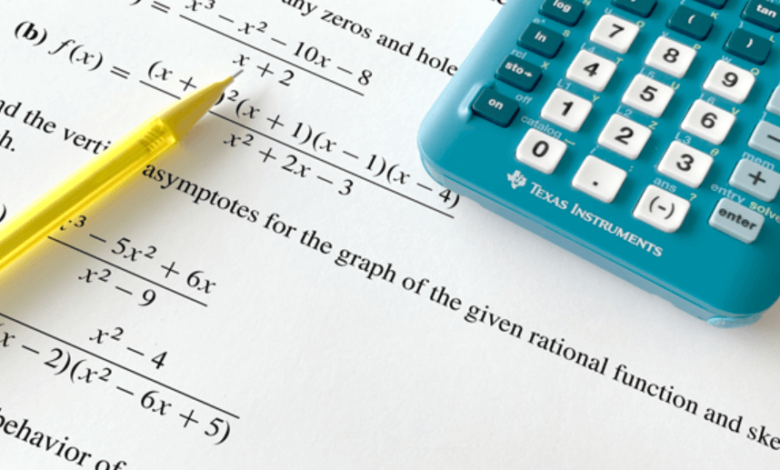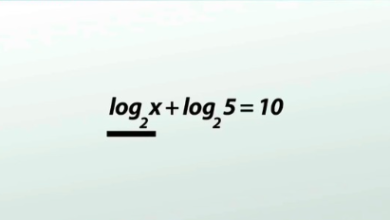Pre Calculus Calculator: A Powerful Aid in Learning Mathematics

Introduction to Pre-Calculus
Pre-calculus serves as a bridge between algebra, trigonometry, and calculus. It includes topics like functions, identities, limits, exponential growth, logarithms, sequences, and analytic geometry. This subject is essential for students preparing for higher-level mathematics, especially in engineering, physics, or computer science.
As mathematical problems become more complex, learners often look for tools that simplify their process. This is where a pre calculus calculator becomes extremely valuable. It provides quick, accurate solutions and graphical visualizations, which help users better understand abstract mathematical principles.
What Is a Pre Calculus Calculator?
A pre calculus calculator is a digital or handheld tool designed to handle mathematical operations and visualizations commonly encountered in pre-calculus. These calculators go beyond basic arithmetic—they offer the ability to solve equations, graph functions, evaluate limits, and more.
Some calculators are embedded in websites, while others come as downloadable software or physical devices like graphing calculators. The primary purpose of a pre calculus calculator is to make solving and learning complex math problems faster, easier, and more intuitive.
Core Functions and Capabilities
Solving Equations
Pre-calculus involves solving a variety of equations, including linear, quadratic, polynomial, and trigonometric equations. A pre calculus calculator can solve these instantly, showing either direct answers or even step-by-step methods in more advanced versions.
Graphing Functions
A core part of pre-calculus is understanding the behavior of functions. Graphing calculators plot multiple equations on coordinate axes, helping students analyze intercepts, asymptotes, slopes, and points of discontinuity. Many online calculators even allow interactive features like zooming and tracing.
Trigonometry and Identities
The pre calculus calculator handles trigonometric functions like sine, cosine, tangent, and their inverses. It also evaluates trigonometric identities and solves related equations with angles in degrees or radians.
Logarithmic and Exponential Functions
These are commonly found in pre-calculus word problems involving growth and decay. Calculators simplify expressions, solve equations, and help visualize exponential or logarithmic curves.
Limits and Sequences
Some advanced calculators can approximate or evaluate limits and help analyze the behavior of sequences and series. This is especially helpful when preparing for calculus.
See also: Pursuing Higher Education: Different Paths To Help You Get Your Dream Job
Why Use a Pre Calculus Calculator?
Enhances Conceptual Understanding
Visual learners especially benefit from seeing graphs and step-by-step problem breakdowns. A calculator reinforces theoretical concepts by turning them into interactive visual models.
Saves Time
Manually solving problems involving complex algebra or trigonometry can be time-consuming. A pre calculus calculator speeds up this process, allowing more time for review and comprehension.
Minimizes Errors
Mistakes are common in lengthy math problems. Calculators ensure higher accuracy and reduce the chance of small calculation errors that can skew results.
Aids in Homework and Exam Preparation
Many teachers now integrate calculator use into curriculum and exams. Familiarity with a pre calculus calculator helps students perform better under timed conditions and understand multiple solution strategies.
Online vs. Handheld Calculators
Online Calculators
Online pre calculus calculators are free, easily accessible, and often include interactive tutorials. Platforms like Desmos, Symbolab, and GeoGebra offer powerful tools that cover nearly all pre-calculus topics.
Advantages:
- Free and web-based
- Updated regularly
- Accessible via smartphones, tablets, and PCs
Limitations:
- Not always allowed in standardized exams
- Dependent on internet access
Handheld Calculators
Devices like the TI-84 Plus or Casio fx-9860GII are commonly used in schools. They’re reliable and meet testing standards set by SAT, ACT, and AP exams.
Advantages:
- Approved in exams
- No internet required
- Durable and dedicated for math use
Limitations:
- Costly compared to free online options
- Limited screen size and interface
Examples of Top Pre Calculus Calculators
Desmos
Desmos is a dynamic online calculator that supports graphing, sliders, and even classroom activities. It’s a favorite among students for its clean design and robust features.
GeoGebra
GeoGebra combines geometry, algebra, and calculus tools in one interactive app. It’s especially helpful for visualizing conic sections, transformations, and vector operations.
TI-84 Plus
This is a standard for U.S. high school students. It provides reliable graphing, equation solving, and statistical analysis capabilities.
Symbolab
Symbolab excels in offering step-by-step explanations. It’s excellent for learners who want to understand every stage of the solution process.
How to Use a Pre Calculus Calculator Effectively
Start With Understanding
Use the calculator only after trying the problem manually. This reinforces learning rather than just depending on automation.
Double-Check Entries
Incorrect parentheses or syntax errors can lead to wrong outputs. Make sure your input matches the problem precisely.
Review the Solution
Take time to study how the calculator arrived at the solution. Many calculators explain steps, which can help in mastering concepts.
Practice Regularly
Frequent use of a pre calculus calculator alongside traditional solving methods leads to better fluency in both manual and digital computation.
Applications in Real Life
Pre-calculus isn’t just an academic subject—it has practical value in various fields:
Engineering
Understanding sinusoidal functions or polynomial behavior is essential in electronics, civil engineering, and mechanics.
Computer Graphics
Game design and animation often use transformations and vectors—concepts deeply rooted in pre-calculus.
Finance
Exponential functions are key in calculating interest rates and financial growth models.
Medicine
In pharmacokinetics, decay models help determine drug absorption and breakdown rates in the body.
In all these fields, a pre calculus calculator simplifies tasks and enhances decision-making.
Final Thoughts
The pre calculus calculator is no longer a luxury but a necessity for today’s math learners. It supports learning by offering instant feedback, detailed graphs, and step-by-step solutions. Whether you’re a high school student, college freshman, or an adult revisiting math, the right calculator can make a world of difference.
Used wisely, this tool not only improves grades but builds confidence and prepares learners for the rigorous challenges of calculus and beyond. As technology evolves, so does education—and the pre calculus calculator is a prime example of this transformation in action.





